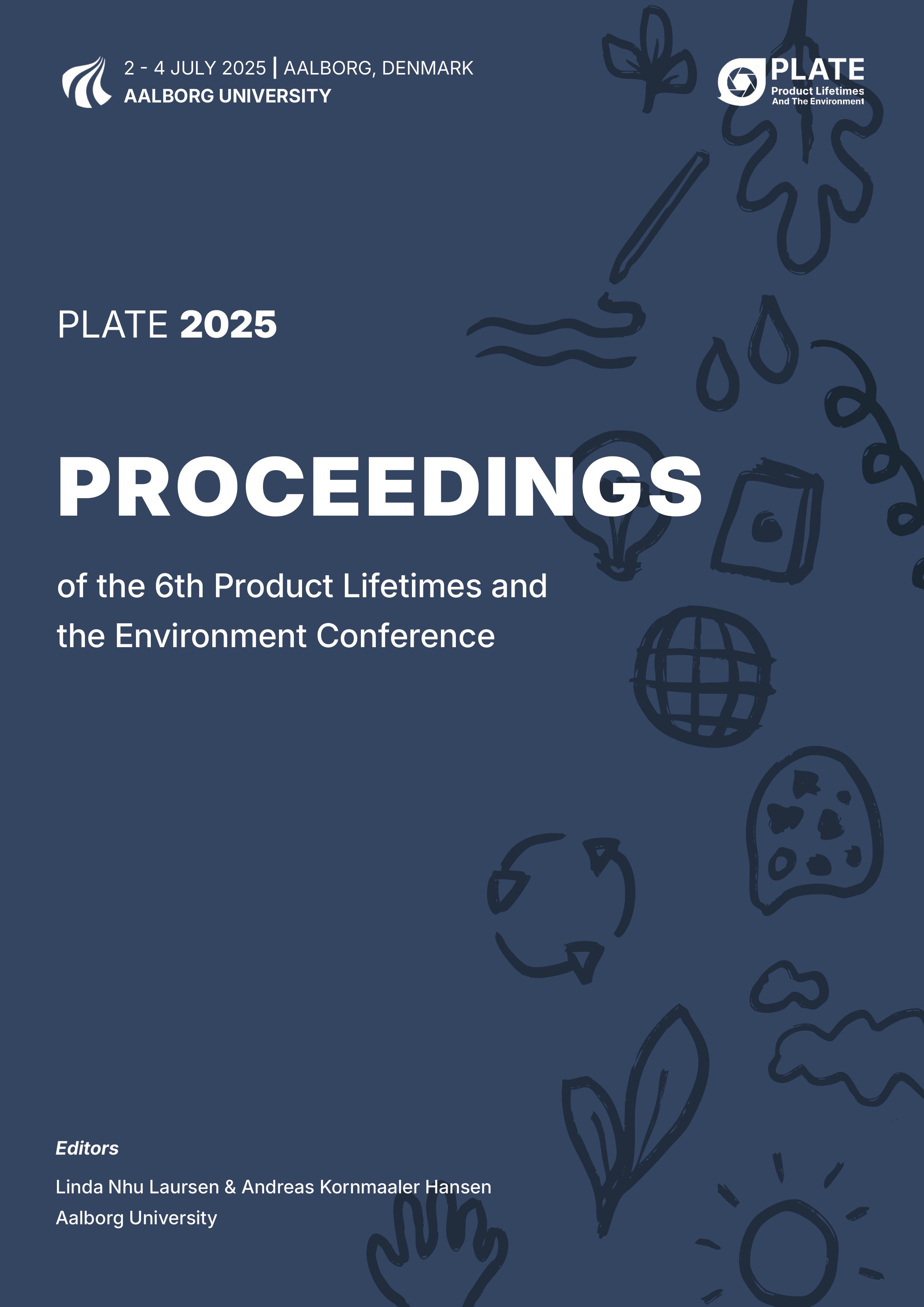Transformative and community-based participation in collaborative business model experimentation for urban upcycling
DOI:
https://doi.org/10.54337/plate2025-10284Keywords:
Experimental collaboration, Participatory business model innovation, Community-based urban upcycling, Product and resource longevityAbstract
Across cities and urban regions in The Netherlands unusual collaborations emerge which aim to develop new circular business models that facilitate product and resource longevity through various upcycling strategies, such as reuse, repair, refurbish, repurpose and/or remanufacture. Municipalities, social entrepreneurs as well as multinational enterprises use various experimentation methods to initiate, test or improve new collaborations in urban upcycling. However, little is known about the role of transformative stakeholder participation in these experiments and how they affect business models for upcycling. Therefore, this study investigates how initiators in urban upcycling use transformative and community-based participatory experimentation to develop collaborative circular business models that facilitate upcycling in a city context. Through a multiple case study approach, this research contributes to literature on circular business model innovation by investigating how practitioners in urban upcycling collaboratively develop, test, implement and scale business models for product and resource longevity in a city context.
References
Andriopoulos, C., & Lewis, M. W. (2009). Exploitation-exploration tensions and organizational ambidexterity: Managing paradoxes of innovation. Organization science, 20(4), 696-717. DOI: 10.1287/orsc.1080.0406
Bocken, N. M., Schuit, C. S., & Kraaijenhagen, C. (2018). Experimenting with a circular business model: Lessons from eight cases. Environmental innovation and societal transitions, 28, 79-95. https://doi.org/10.1016/j.eist.2018.02.001
Bocken, N., & Coffay, M. (2022). The circular experimentation Workbench–a lean and effectual process. Circular Economy and Sustainability, 3(3), 1361-1383. DOI: 10.1007/s43615-022-00239-w
Bocken, N., & Konietzko, J. (2023). Experimentation capability for a circular economy: a practical guide. Journal of Business Strategy, 44(6), 406-414.
Bocken, N., Strupeit, L., Whalen, K., & Nußholz, J. (2019). A review and evaluation of circular business model innovation tools. Sustainability, 11(8), 2210. DOI: 10.3390/su11082210
Bocken, N. M., Weissbrod, I., & Antikainen, M. (2021). Business model experimentation for the circular economy: definition and approaches. Circular Economy and Sustainability, 1(1), 49-81 DOI: 10.1007/s43615-021-00026-z
Bocken, N., Miller, K., Weissbrod, I., Holgado, M., & Evans, S. (2017). Business Model Experimentation for Circularity: Driving sustainability in a large international clothing retailer. Economics and Policy of Energy and the Environment (EPEE), 2017(1), 85-122. DOI: 10.3280/EFE2017-001006
Bocken, N., & Ritala, P. (2022). Six ways to build circular business models. Journal of Business Strategy. DOI: 10.1108/JBS-11-2020-0258
Brown, P., Baldassarre, B., Konietzko, J., Bocken, N., & Balkenende, R. (2021). A tool for collaborative circular proposition design. Journal of Cleaner Production, 297, 126354. https://doi.org/10.1016/j.jclepro.2021.126354
Bryman, A., & Bell, E. (2011). Business research methods. 3rd ed. Cambridge ; New York, NY, Oxford University Press. https://doi.org/10.20935/AcadBiol7688
Faun, H., & Maas, K., (2021) Handelingsperspectief sociaal domein circulaire ambachtscentra, Rijkswaterstaat / Panteia Zoetermeer https://vang-hha.nl/kennisbibliotheek/handelingsperspectief-sociaal-domein-circulaire/
Faun, H., Goes, M., Maas, K., Steenland, R. (2019) sociale activatie op Circulaire Ambachtscentra, Rijkswaterstaat / Panteia Zoetermeer
Geissdoerfer, M., Savaget, P., Bocken, N., & Hultink, E. J. (2022). Prototyping, experimentation, and piloting in the business model context. Industrial Marketing Management, 102, 564-575.
Leavy, P. (2017). Research design. New York, The Guilford.
Mezirow, J. (2009) An overview of transformative learning. In Illeris, K. (ed) Contemporary Theories of Learning, London: Routledge, pp. 90-105.
Ministerie van Infrastructuur en Waterstaat (2023), Startersgids circulair ambachtscentrum, ism VNG, NVRD, repaircafé, branchevereniging kringloopbedrijven https://circulairambachtscentrum.nl/slag/starten-circulair-ambachtscentrum/
Oskam, I., Bossink, B., & de Man, A. P. (2021). Valuing value in innovation ecosystems: How cross-sector actors overcome tensions in collaborative sustainable business model development. Business & society, 60(5), 1059-1091. https://doi.org/10.1177/0007650320907
Pel, B., Dumitru, A., Kemp, R., Haxeltine, A., Jorgensen, M. S., Avelino, F., ... & Bauler, T. (2017). Synthesis report: meta-analysis of Critical Turning Points in TSI: Deliverable D5. 4. TRANSIT - Transformative Social Innovation Theory project
Prendeville, S., Cherim, E., & Bocken, N. (2017). Circular cities: Mapping six cities in transition. Environmental innovation and societal transitions, 26, 171-194. https://doi.org/10.1016/j.eist.2017.03.002
Scholl, C., & de Kraker, J. (2021). The practice of urban experimentation in Dutch city labs. Urban Planning, 6(1), 161-170. DOI: 10.17645/up.v6i1.3626
Seelos, C., & Mair, J. (2017). Innovation and scaling for impact : how effective social enterprises do it (1st ed.). Stanford Business Books, an imprint of Stanford University Press. https://doi.org/10.1515/9781503600997
Sprague, L., Afifi, R., Ayala, G., & El-Nasoor, M. L. (2019). Participatory praxis as an imperative for health-related stigma research. BMC medicine, 17, 1-8. https://doi.org/10.1186/s12916-019-1263-3
Werner, A., Albers. J., Verschuren, H, Dierdorp, L. (2020) Onderzoek effecten circulaire ambachtscentra, ism Anteagroup, Rijkswaterstaat Utrecht https://vang-hha.nl/kennisbibliotheek/onderzoek-effecten-circulaire-ambachtscentra/
Yin, R. K. (2009). Case study research: Design and methods (Vol. 5). sage. DOI: https://doi.org/10.33524/cjar.v14i1.73




